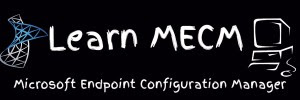<#
.SYNOPSIS
This script generate the status messages for sms provider, site server and client.
Author: Eswar Koneti
Date:15-Nov-2019
#>
<#param(
[Parameter(Mandatory=$True)]
[string]$stringPathToDLL,
[Parameter(Mandatory=$True)]
[string]$stringOutputCSV
) #>
$scriptpath = $MyInvocation.MyCommand.Path
$dir = Split-Path $scriptpath
$date = (get-date -f dd-MM-yyyy-HHmmss)
$Dllfiles=Get-ChildItem -Path "$dir\*.dll" -Recurse
foreach ($file in $Dllfiles)
{
$dir=$File.Directory.FullName
$dll=$file.name
$strOutputCSV = $dir+"\"+$dll+".csv"
$stringPathToDLL = $dir+"\"+$dll
#Start Invoke Code
$sigFormatMessage = @'
[DllImport("kernel32.dll")]
public static extern uint FormatMessage(uint flags, IntPtr source, uint messageId, uint langId, StringBuilder buffer, uint size, string[] arguments);
'@
$sigGetModuleHandle = @'
[DllImport("kernel32.dll")]
public static extern IntPtr GetModuleHandle(string lpModuleName);
'@
$sigLoadLibrary = @'
[DllImport("kernel32.dll")]
public static extern IntPtr LoadLibrary(string lpFileName);
'@
$Win32FormatMessage = Add-Type -MemberDefinition $sigFormatMessage -name "Win32FormatMessage" -namespace Win32Functions -PassThru -Using System.Text
$Win32GetModuleHandle = Add-Type -MemberDefinition $sigGetModuleHandle -name "Win32GetModuleHandle" -namespace Win32Functions -PassThru -Using System.Text
$Win32LoadLibrary = Add-Type -MemberDefinition $sigLoadLibrary -name "Win32LoadLibrary" -namespace Win32Functions -PassThru -Using System.Text
#End Invoke Code
$sizeOfBuffer = [int]16384
$stringArrayInput = {"%1","%2","%3","%4","%5", "%6", "%7", "%8", "%9"}
$flags = 0x00000800 -bor 0x00000200
$stringOutput = New-Object System.Text.StringBuilder $sizeOfBuffer
$colMessages = @()
#Load Status Message Lookup DLL into memory and get pointer to memory
$ptrFoo = $Win32LoadLibrary::LoadLibrary($stringPathToDLL.ToString())
$ptrModule = $Win32GetModuleHandle::GetModuleHandle($stringPathToDLL.ToString())
#Find Informational Status Messages
for ($iMessageID = 1; $iMessageID -ile 99999; $iMessageID++)
{
$result = $Win32FormatMessage::FormatMessage($flags, $ptrModule, 1073741824 -bor $iMessageID, 0, $stringOutput, $sizeOfBuffer, $stringArrayInput)
if( $result -gt 0)
{
$objMessage = New-Object System.Object
$objMessage | Add-Member -type NoteProperty -name MessageID -value $iMessageID
$objMessage | Add-Member -type NoteProperty -name MessageString -value $stringOutput.ToString().Replace("%11","").Replace("%12","").Replace("%3%4%5%6%7%8%9%10","")
$objMessage | Add-Member -type NoteProperty -name Severity -value "Informational"
$colMessages += $objMessage
#$iMessageID
#$stringOutput.ToString()
}
#$previousString = $stringOutput.ToString()
}
#Find Warning Status Messages
for ($iMessageID = 1; $iMessageID -ile 99999; $iMessageID++)
{
$result = $Win32FormatMessage::FormatMessage($flags, $ptrModule, 2147483648 -bor $iMessageID, 0, $stringOutput, $sizeOfBuffer, $stringArrayInput)
if( $result -gt 0)
{
$objMessage = New-Object System.Object
$objMessage | Add-Member -type NoteProperty -name MessageID -value $iMessageID
$objMessage | Add-Member -type NoteProperty -name MessageString -value $stringOutput.ToString().Replace("%11","").Replace("%12","").Replace("%3%4%5%6%7%8%9%10","")
$objMessage | Add-Member -type NoteProperty -name Severity -value "Warning"
$colMessages += $objMessage
#$iMessageID
#$stringOutput.ToString()
}
#$previousString = $stringOutput.ToString()
}
#Find Error Status Messages
for ($iMessageID = 1; $iMessageID -ile 99999; $iMessageID++)
{
$result = $Win32FormatMessage::FormatMessage($flags, $ptrModule, 3221225472 -bor $iMessageID, 0, $stringOutput, $sizeOfBuffer, $stringArrayInput)
if( $result -gt 0)
{
$objMessage = New-Object System.Object
$objMessage | Add-Member -type NoteProperty -name MessageID -value $iMessageID
$objMessage | Add-Member -type NoteProperty -name MessageString -value $stringOutput.ToString().Replace("%11","").Replace("%12","").Replace("%3%4%5%6%7%8%9%10","")
$objMessage | Add-Member -type NoteProperty -name Severity -value "Error"
$colMessages += $objMessage
#$iMessageID
#$stringOutput.ToString()
}
#$previousString = $stringOutput.ToString()
}
$colMessages | Export-CSV -path $strOutputCSV -NoTypeInformation
}
$csvs = Get-ChildItem "$dir\*.csv"
$y=$csvs.Count
Write-Host "Detected the following CSV files: ($y)"
foreach ($csv in $csvs)
{
Write-Host " "$csv.Name
}
$outputfilename = "StatusMessages-$date.xlsx" #creates file name with date/username
Write-Host Creating: $outputfilename
$excelapp = new-object -comobject Excel.Application
$excelapp.sheetsInNewWorkbook = $csvs.Count
$xlsx = $excelapp.Workbooks.Add()
$sheet=1
foreach ($csv in $csvs)
{
$row=1
$column=1
$worksheet = $xlsx.Worksheets.Item($sheet)
$worksheet.Name = $csv.Name
$file = (Get-Content $csv)
foreach($line in $file)
{
$linecontents=$line -split ',(?!\s*\w+")'
foreach($cell in $linecontents)
{
$worksheet.Cells.Item($row,$column) = $cell
$column++
}
$column=1
$row++
}
$sheet++
}
$output = $dir + "\" + $outputfilename
$xlsx.SaveAs($output)
$excelapp.quit()
cd \ #returns to drive root
Remove-Item "$dir\*.csv" -Recurse -Force -ErrorAction SilentlyContinueTopics
Monday, 26 July 2021
Using Scripts to trigger software updates remotely from the software center
$MissingUpdatesReformatted = @($MissingUpdates | ForEach-Object {if($_.ComplianceState -eq 0){[WMI]$_.__PATH}})
if ( $MissingUpdatesReformatted)
{
$InstallReturn = Invoke-WmiMethod -ComputerName $env:computername -Class CCM_SoftwareUpdatesManager -Name InstallUpdates -ArgumentList (,$MissingUpdatesReformatted) -Namespace root\ccm\clientsdk
write-host "Updates found, initiated"
}
else
{
write-host "No updates found"
}
VB Script to delete Software update files from SCCM client Cache folder
On Error Resume Next
Set objFSO = CreateObject("Scripting.FileSystemObject")
Set objShell = WScript.CreateObject("WScript.Shell")
'Delete all software update caches
If objFSO.FolderExists("C:\Windows\System32\ccm\cache") Then
objShell.Run ("cmd /c dir /b c:\windows\system32\ccm\cache\*-*-*-*-*.1.System>c:\temp\caches.txt")
else
objShell.Run ("cmd /c dir /b c:\windows\syswow64\ccm\cache\*-*-*-*-*.1.System>c:\temp\caches.txt")
End If
If objFSO.FileExists ("C:\temp\caches.txt") Then
Set objFile = objFSO.OpenTextFile("C:\temp\caches.txt", 1)
Do Until objFile.AtEndOfStream
strLine = objFile.ReadLine
'Wscript.Echo strLine
dirPath = "c:\windows\system32\ccm\cache\" & strLine
'Wscript.Echo dirPath
objFSO.DeleteFolder dirPath, True
Wscript.Sleep 10
Loop
objFile.Close
End If
Wscript.Quit(0)
Script to Change SCCM Configmgr Client Cache Size
Friday, 23 July 2021
SCCM Client Uninstall script
Sunday, 18 July 2021
Script to install SCCM Client
Just copy this to notepad and rename .cmd ... Then just launch it from the server you want the client installed on.
YourSccmServerrName = The name of your SCCM server
YoursiteCodeName = Whatever you named your site code
@echo off
"\\YourSCCMServerName\C$\Program Files (x86)\Microsoft Configuration Manager\Client\ccmsetup.exe" /mp:YourSccmServerName SMSSITECODE=YoursiteCodeName SMSSLP=YourSccmServerName SMSMP=YourSccmServerName DISABLECACHEOPT=TRUE DISABLESITEOPT=TRUE
SCCM/MECM Client manual installation command line
ccmsetup.exe /mp:<Management Point FQDN> SMSSITECODE=001 SMSMP=<Management Point FQDN> DNSSUFFIX=<domain suffix>
